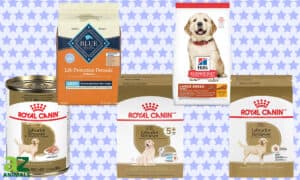| Best for | Product |
|---|---|
| Best Overall | Sentinel Spectrum Chew for Dogs |
| Best on a Budget | Tri-Heart Plus Chewable Tablet for Dogs |
| Best for Fleas | Trifexis Chewable Tablet for Dogs |
| Best Powder | Panacur C Canine Dewormer Dogs |
Worm infestations in dogs are a prevalent concern. Since their stomach and endocrine systems are still growing, puppies are more vulnerable to the impacts of worms. Tapeworms, roundworms, hookworms, whipworms, and heartworms are among the parasites that can plague your dog.
Safeguarding your dog from parasites ensures that he or she stays healthy, but choosing the right treatment may be difficult when there are so many possibilities. What is the best dewormer for puppies? A few of the brands defend against a variety of parasites, while others are only effective against one or two species of worms. And are all dewormers safe for both puppies and adult dogs?
Despite the fact that the goods are designed to be safe for your pet, it’s a good idea to look into the potential side effects in case your dog has an allergic response. Let’s explore in more detail the best dewormer for puppies below.
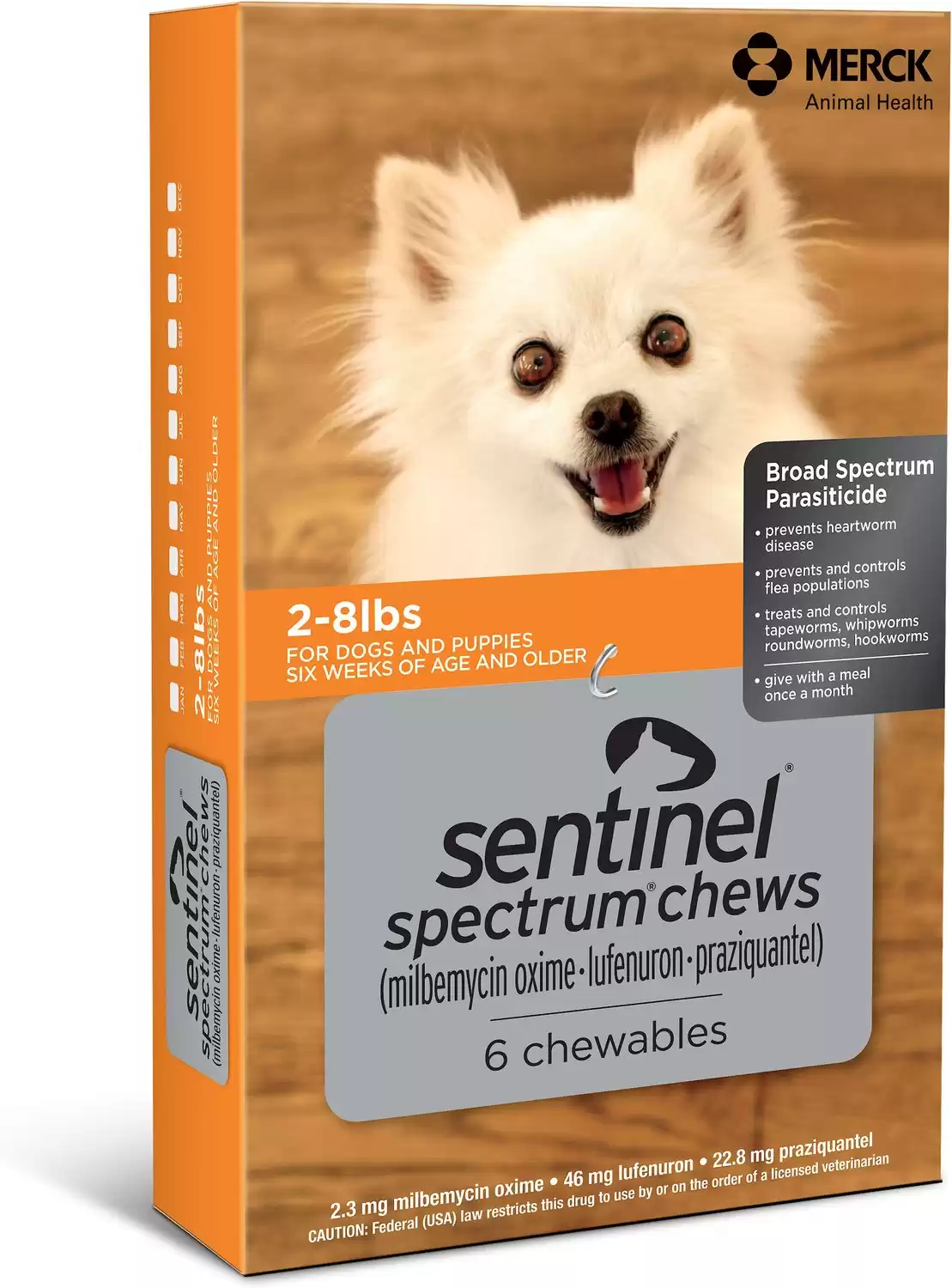 Check Chewy
Check Chewy- Prevents the development of flea eggs
- Protect against harmful heartworm diseases
- Tasty chews
- For the prevention of whipworms, roundworms, heartworms, tapeworms, and hookworms
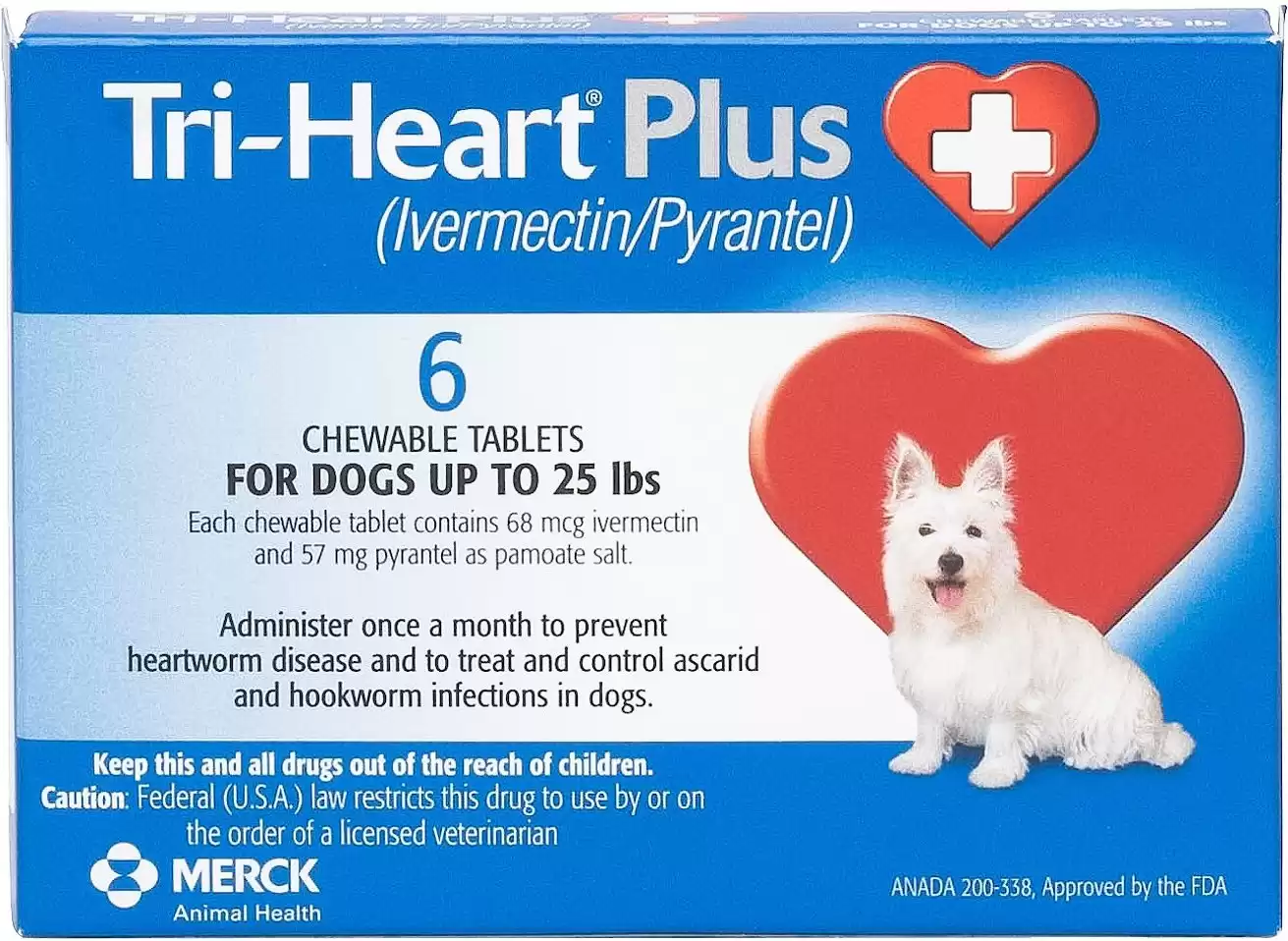 Check Chewy
Check Chewy- Affordable option
- Protects against roundworms, hookworms, and heartworm disease
- Chewable tablet
- Little or no side-effects
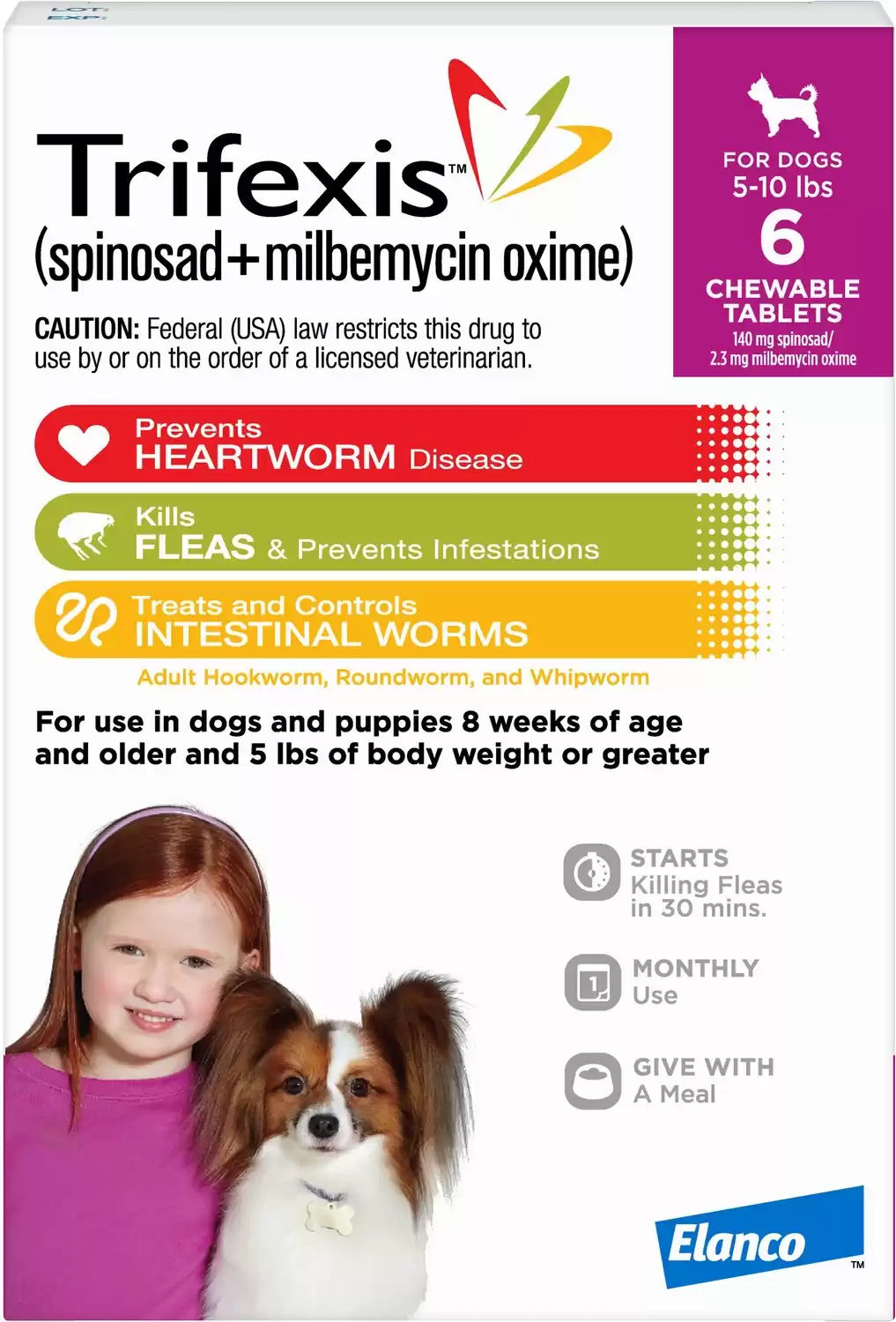 Check Chewy
Check Chewy- Starts working within 30 minutes
- Comes in a beef-flavored tablet
- Treats whipworms, roundworms, and hookworms
- Take care of flea infestations
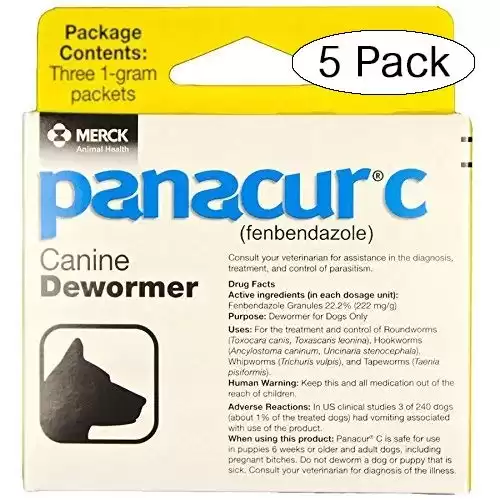 Check Amazon
Check Amazon- Add to wet food or kibble
- Treats whipworms, hookworms, Taenia tapeworms, and roundworms
- No prescription required
- Takes about three days for worms to die
A-Z-Animals Top Picks for Dewormer for Puppies
#1 Best Overall: Sentinel Spectrum Chew for Dogs
After we compared several dewormers for puppies, we found that the ultimate best is the Sentinel Spectrum Chew for dogs.
Sentinel is known for making high-quality products that pet parents can trust. One reason it stands out from the rest is that it treats more than just intestinal worms but treats flea eggs too.
No matter what type of worms your pooch has, this wormer can get the job done. It fights off whipworms, roundworms, heartworms, tapeworms, and hookworms. Your puppy has to be at least two pounds and six weeks of age to use Sentinel chews.
It comes as a chewable tablet and while dogs enjoy the taste of this chew more than others, we do want to mention that it’s not the best option for preventing adult fleas. That seems to be the only downside of our number one choice.
Pros and Cons of the Sentinel Spectrum Chew for Dogs
| Pros | Cons |
|---|---|
| This wormer protects against whipworms, roundworms, heartworms, tapeworms, and hookworms. | It is not particularly effective against adult fleas. |
| It is effective against flea eggs. | |
| It is suitable for puppies six weeks of age and weighing more than two pounds. | |
| It comes as a chewable tablet. |
- Prevents the development of flea eggs
- Protect against harmful heartworm diseases
- Tasty chews
- For the prevention of whipworms, roundworms, heartworms, tapeworms, and hookworms
2. Best on a Budget: Tri-Heart Plus Chewable Tablet for Dogs
Taking the second choice for puppy dewormer and our top pick for the best value is the Tri-Heart Plus Chewable Tablet for Dogs. This option stands out because it offers the same thing as the expensive dewormers without breaking the bank.
Keeping a puppy in great health can be expensive, especially if they have worms. If you’re looking to reduce healthcare costs for your four-legged friend without compromising quality, these worming tablets are a great choice!
This chew can be given as a treat or with food and protects dogs from roundworms, hookworms, and heartworm disease. It’s designed for canines 25 pounds and under. Like most other dewormer tablets, this should be given to your pooch monthly for best results.
Puppies must be at least six weeks of age in order to use the Tri-Heart Plus dewormer. Something we want to note is that the tablet is quite large and can be hard for some puppies to chew. Break it up into smaller bits and mix it in with their food to make it easy for them to consume.
Pros and Cons of the Tri-Heart Plus Chewable Tablet for Dogs
| Pros | Cons |
|---|---|
| This wormer comes as a chewable tablet. | The tablet is quite large and difficult for some dogs to chew. |
| It provides protection against roundworms, hookworms, and heartworm disease. | It is not suitable for dogs weighing more than 25 pounds. |
| It can be given as a treat or with food. |
- Affordable option
- Protects against roundworms, hookworms, and heartworm disease
- Chewable tablet
- Little or no side-effects
3. Best for Fleas: Trifexis Chewable Tablet for Dogs
It’s always good to be able to take care of several parasites in one go, and the Trifexis Chewable Tablet for Dogs does just that, taking care of worms, heartworm disease, and flea infestations.
There are many different forms of dewormer, including tablets, chewable, topicals, powders, and more. Trifexis Chewable Tablets for dogs stand out to us because they’ve been on the market for over a decade.
If you’re looking for something that will take care of worms, heartworm disease, and flea infestations, this is a great choice. You won’t have to wait long as Trifexis starts working within 30 minutes to treat whipworms, roundworms, and hookworms.
It’s not often that a dewormer kills whipworms, making this choice even more comprehensive. When whipworms aren’t addressed with a dewormer, they can lead to more health issues like excessive weight loss and anemia in your dog.
Your puppy will enjoy the beef-flavored tablet that can be given as a treat or added to their food. One tablet a month will protect your pooch for up to 30 days. However, this is a prescription-only product and is also a more expensive option.
Pros and Cons of the Trifexis Chewable Tablet for Dogs
| Pros | Cons |
|---|---|
| This product takes care of worms, heartworm disease, and flea infestations. | It requires a veterinary prescription. |
| It begins to work within 30 minutes. | It is more expensive than other options. |
| It kills whipworms. | |
| It is a beef-flavored tablet that can be given as a treat or with food. | |
| It provides 30 days of protection. |
- Starts working within 30 minutes
- Comes in a beef-flavored tablet
- Treats whipworms, roundworms, and hookworms
- Take care of flea infestations
4. Best Powder: Panacur C Canine Dewormer
It’s not uncommon for puppies to dislike the flavor of tablets and chews. If you want to be sure your doggo gets down their dewormer medicine with ease, consider a powder form like Panacur C Canine Dewormer.
You can add a serving size into their wet food or put it on their dry kibble and add water. Panacur C works to banish whipworms, hookworms, taenia tapeworms, and roundworms. It takes around three days before the worms will start to leave your pooch’s body.
One reason this powder stands out to us is that it doesn’t require a prescription like other dewormers on the market. However, it’s always in your (and your dog’s) best interest to talk to your vet before giving your pooch any medicine.
The only issue that customers had with this product is that some found it difficult to get their dogs to eat it with their food.
Pros and Cons of the Panacur C Canine Dewormer
| Pros | Cons |
|---|---|
| This wormer can be added to your dog’s food. | It can be difficult to encourage dogs to eat this wormer with their food. |
| It does not require a prescription. | It takes three days to begin to work. |
| It is effective against whipworms, hookworms, taenia tapeworms, and roundworms |
- Add to wet food or kibble
- Treats whipworms, hookworms, Taenia tapeworms, and roundworms
- No prescription required
- Takes about three days for worms to die
How Do Puppies Get Worms?
In a dream world, puppies would be protected from all harm, including worms. Unfortunately, the reality is that most dogs come in contact with at least one type of worm at some time during their life. Out of all of the worms possible, intestinal worms are the most common. Parasites can make their way into your pup’s system in a number of ways.
Consuming Worm Eggs or Larvae
Your pooch may experience whipworms, roundworms, and hookworms from eating worm larvae or eggs. These are often found in the soil from the faeces of infected animals. Larvae can live in the dirt for an extended period of time, even in extreme weather conditions. Dogs can accidentally eat the eggs by simply sniffing or eating dirt or grass.
Hookworms can be contracted by your dog consuming hookworm larvae present in the soil. Hookworms can also be acquired by direct physical contact with larvae found in dirt or sand. The larvae, which are little live worms, may burrow into your pup’s skin.
Worm eggs can also be brought into a home accidentally on people’s shoes. If you tread on dirt or plants that contain roundworm eggs, whipworm eggs, or hookworm larvae, they can be dragged into your home and inadvertently consumed by your dog.
Outdoor Behavior
Parasite eggs aren’t just eaten by dogs. If your dog enjoys hunting or scavenging, they may pick up worms from diseased animals such as rats, bunnies, birds, and even insects such as cockroaches and earthworms that have consumed worm eggs.
Unlike dogs, these eggs do not mature into adult worms and instead remain in a hibernating form. Nevertheless, when a dog eats the eggs, they “wake up” and mature into adult worms. Keep a watch on your dog when they’re out and about to prevent them from eating these possibly harmful critters.
Grooming Habits
Your dog may contract worms just by attempting to remain clean. Roundworm eggs can stick to your dog’s coat, and if he eats any while grooming himself, he could have a new roundworm illness. To reduce this danger, giving your dog a wash after they’ve been rolling about in the mud or playing in the yard is always a good idea.
Fleas
If your doggo has a flea infestation, he or she is in danger of contracting an intestinal worm. Tapeworms are spread by fleas, and if your pooch eats infected fleas while cleaning, they might get tapeworms. Groom your dog on a regular basis, use a flea comb to check for fleas, and stick to your flea prevention program to avoid flea infestation in your dog and house.
From Mother to Pup
Roundworm, among the most prevalent worms in dogs, may be passed through the placenta from an infected mother to her unborn puppies. While nursing, an infected dog can spread roundworms and hookworms to her puppies.
This means that nursing pups are also in danger of being exposed to these parasites on a regular basis. In newborn puppies, roundworm and hookworm can be exceedingly hazardous, even lethal in extreme situations. If you’ve recently acquired a puppy, talk to your veterinarian about when you may start worming medications.
Choosing the Best: What to Look For
It’s crucial to get a safe formula for your dog! We like the alternatives above and want to give you some suggestions on what to look for when choosing a dewormer for your dog. Let’s have a look at these crucial elements.
Price
Just like anything else you purchase for your pooch, you’ll want to consider the price of a dewormer. With so many options on the market, they come in a wide price range. As your vet about payment plans or consider our budget option from this review.
Veterinary Suggestions
Although some of the medications we studied do not require veterinarian clearance, we strongly advise you to consult with your puppy’s doctor before choosing a dewormer.
Environmental Considerations
Worms may infect your dog at any time of year, but the pests are more prevalent during the summer months when canines are more engaged outdoors. A roundworm, whipworm, or hookworm invasion can occur if a puppy swallows a decaying corpse or a piece of dirt containing parasite eggs.
Hotter temperatures also draw mosquitos, which may spread heartworms, and fleas, which can spread tapeworms. Worm prevention is necessary all year, but dewormers must be administered with greater caution during the summer. Any gap in therapy might result in a recurrence of the infestation.
Puppy Taste Preferences
The most successful medicines are the tablets that kill many parasites, however, some canines dislike swallowing pills. Although the pills can be hidden in food, many puppies can taste the flavor and shun the meal entirely. If you have a very picky puppy, consider liquid or powder items with milder tastes.
Side Effects
Dewormers can cause diarrhea and vomiting in a small fraction of canines, so keep an eye on your puppy after it takes the drug to see if it has any problems. A few of the ingredients in dewormers are particularly toxic to dogs that have seizures, so see your veterinarian beforehand if your pet has any medical issues.
While some companies advocate continuing the dewormer dosage if your pet vomits after the initial treatment, we advise seeing your veterinarian first.
The Different Types of Dewormer for Puppies: Pros and Cons Compared
Unfortunately, no one worming medicine is helpful against all of these various worm species. To destroy the particular worms in your dog’s body, you must use the appropriate medicine.
Some worm remedies are available without a prescription, while others require a prescribed medication from your veterinarian. The following are the three most common over-the-counter medications used to treat worms in dogs.
- Fenbendazole: Fenbendazole is effective against most roundworms, hookworms, and whipworms found in dogs, but it does not kill the dog tapeworm consistently. For pregnant or breastfeeding women, fenbendazole is normally regarded as safe.
- Pyrantel pamoate: Pyrantel pamoate is an excellent roundworm and hookworm killer. It’s frequently combined with Praziquantel. Pyrantel pamoate should not be used by pregnant or nursing canines.
- Praziquantel: Praziquantel is an anti-tapeworm medication that works on a range of tapeworms. Pyrantel pamoate is frequently used with it. Praziquantel should not be taken by pregnant or nursing pups.
Liquid, chewable pills, or granular powder are the most common forms of these medications. Chewable tablets can be given as a reward, but any of the three can simply be put into your pet’s meal. The majority of chewable pills are flavored to make them more appealing, although powders and liquids are rarely flavored.
Signs Your Puppy Has Worms
Worms in dogs are highly prevalent, with roundworms and tapeworms being the most common intestinal kinds. As you read earlier, worms can be obtained in a number of ways. Some of the telltale signs of these pesky creatures are:
- Loss of energy
- Vomiting
- Bloating
- Weight loss
- Sore bottom
- Poor coat quality
- Weakness
- Coughing
- Wheezing
- Diarrhea
- Shortness of breath
The treatment will be based in part on the veterinarian’s diagnosis, however, worming should be done on a regular basis regardless of signs as a preventative step.
Up Next
- The Best Dog Beds — Find the best bed for your pooch here.
- Best Dry Dog Food — Check out the very best dry dog food on the market here.
- The Best Wet Dog Food — Check out the best wet dog food options here.
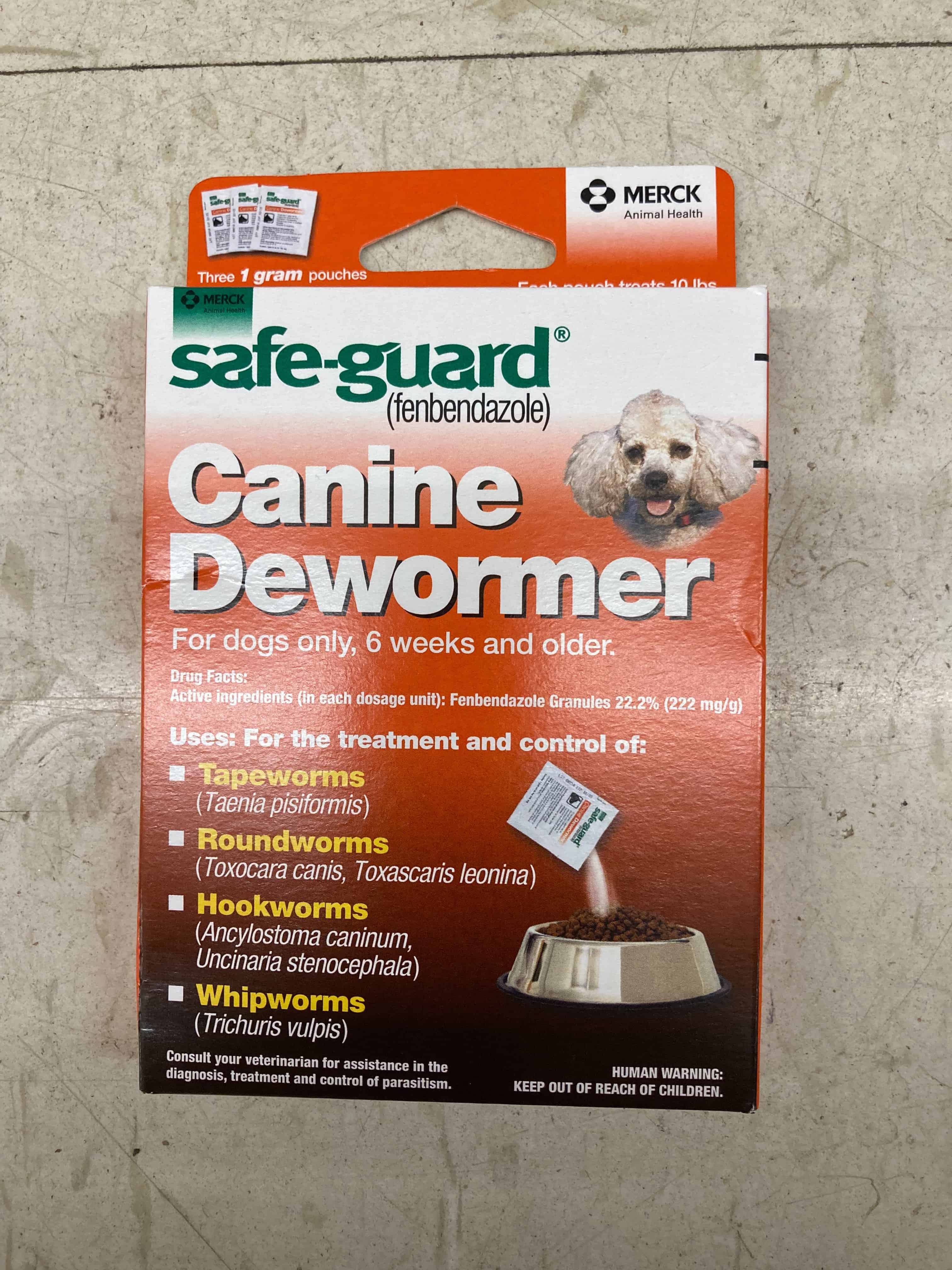
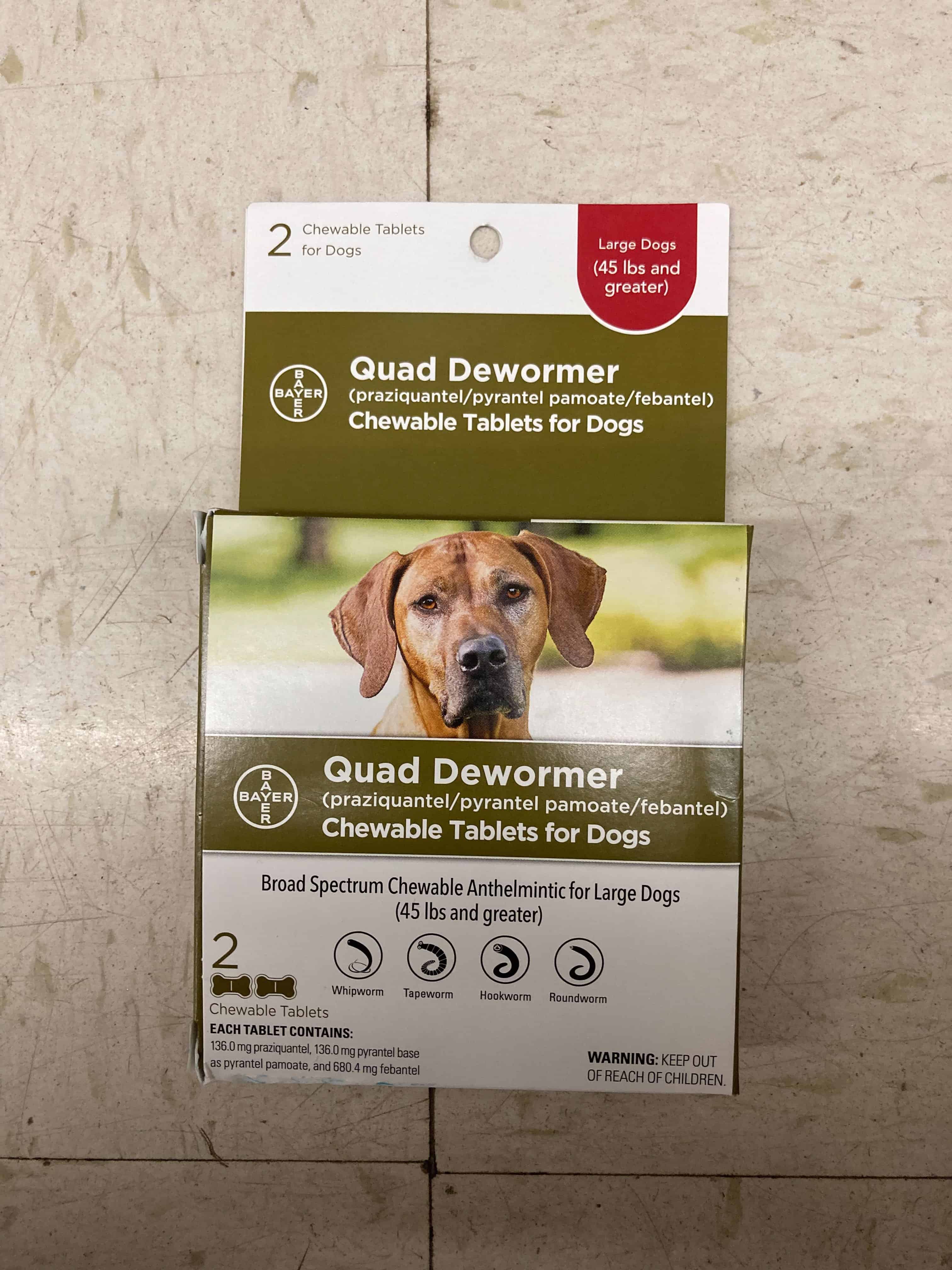
| Best for | Product |
|---|---|
| Best Overall | Sentinel Spectrum Chew for Dogs |
| Best on a Budget | Tri-Heart Plus Chewable Tablet for Dogs |
| Best for Fleas | Trifexis Chewable Tablet for Dogs |
| Best Powder | Panacur C Canine Dewormer Dogs |
The Best Dewormer for Puppies: Top Rated FAQs (Frequently Asked Questions)
How can I tell whether the dewormer is effective?
Some worms may not be seen because they disintegrate within dogs, but others will be paralyzed by the drug and may be passed out in the stool or vomit. Furthermore, an improvement in your dog’s overall health and physical appearance might suggest that her dewormer is effective and that worms are exiting her body.
How long does it take to deworm a puppy?
The worms might begin to die as soon as two hours have passed. In most cases, however, the procedure begins around 12 hours after the dewormer is administered. For approximately a week, you may find worms in your puppy’s stool. You may observe worms for up to two weeks if they had a heavy infestation.
What can you expect after a puppy has been dewormed?
Expect your puppy to excrete worms after you’ve dewormed him. This is because the deworming drug renders the worms immobile, allowing them to travel through the intestines and into the feces. What exactly is this? After deworming, you should anticipate your dog to have diarrhea.
Thank you for reading! Have some feedback for us? Contact the AZ Animals editorial team.

